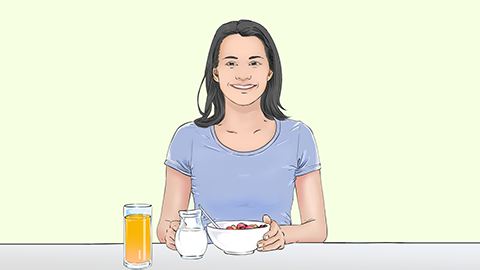Why do I always choke when eating or drinking?
Under normal circumstances, the main causes of frequent choking during eating or drinking include eating too quickly, lack of concentration while eating, gastroesophageal reflux disease (GERD), achalasia, esophagitis, and other conditions. If discomfort occurs, it is recommended to seek timely medical evaluation and treatment at a正规 hospital. Specific analyses are as follows:
1. Eating too quickly
Swallowing food rapidly without thorough chewing may cause large chunks to get stuck in the narrow parts of the esophagus, leading to a sensation of choking. It is advisable to slow down during meals, chew food thoroughly until soft, swallow in small bites, and avoid hurried or excessive eating.
2. Lack of concentration while eating
Frequent talking, looking at mobile phones, or watching TV during meals can distract attention, resulting in uncoordinated swallowing movements and increasing the risk of food entering the esophagus or trachea, causing choking. Focus on the act of swallowing during meals, avoid multitasking, and create a quiet eating environment.

3. Gastroesophageal Reflux Disease (GERD)
Stomach contents flowing back into the esophagus can irritate and damage the esophageal mucosa, impair esophageal motility, and lead to food retention that causes a choking sensation. This condition is often accompanied by acid reflux and heartburn. Medications such as omeprazole enteric-coated capsules, rabeprazole sodium enteric-coated tablets, and domperidone tablets may be taken under medical guidance. Avoid lying flat immediately after meals and reduce intake of high-fat and spicy foods.
4. Achalasia
Dysfunction of the lower esophageal sphincter's relaxation prevents food from passing smoothly into the stomach, causing it to accumulate in the esophagus and produce a choking feeling. Severe cases may also involve retrosternal pain. Medications such as nitroglycerin tablets, nifedipine tablets, and itopride hydrochloride tablets may be prescribed under medical supervision. When drug therapy proves ineffective, laparoscopic Heller myotomy may be required. After surgery, adopt a regimen of eating smaller meals more frequently.
5. Esophagitis
Inflammation of the esophageal mucosa caused by irritation or infection leads to mucosal congestion and swelling, narrowing the esophageal lumen and obstructing food passage, which results in a choking sensation and may be accompanied by painful swallowing. Medications such as lansoprazole enteric-coated tablets, hydrotalcite chewable tablets, and mosapride citrate tablets can be used under medical advice. Avoid consuming excessively hot or hard foods to minimize irritation to the esophageal lining.
In daily life, cultivate the habit of chewing slowly and thoroughly; remain focused during meals and avoid distractions; control food temperature to prevent burns from overly hot food; reduce consumption of spicy and greasy foods to prevent GERD; and undergo regular gastrointestinal examinations to detect esophageal abnormalities early.




